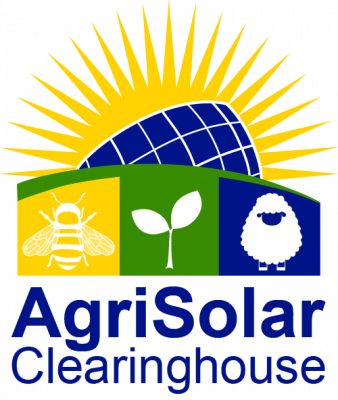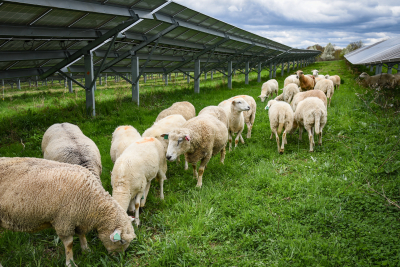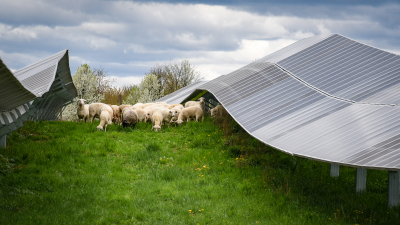Hear the latest from Massachusetts on dual-use solar research and programs, from hay to vegetables to pollinators!
Agrivoltaics/dual-use solar covers an increasingly wide umbrella of types of agriculture as the importance of maintaining farmland with solar sites becomes a greater area of focus. Many of the ideas on what can be grown, raised or grazed next to panels are still in the early experimental stages and need more research and data.
The state of Massachusetts is supporting a variety of research projects on different applications of dual-use solar, ranging from hay to vegetable crops to pollinators and, of course, sheep grazing.
Gerry Palano from the MA Department of Agricultural Resources (MDAR) will join us to talk about a number of those projects and the different forms of dual-use.
Gerry’s talk will also provide a broad overview of MDAR’s SMART program for commercial scale dual-use solar projects and the incentives and tools the state offers. He will dig into the opportunities and challenges surrounding dual-use projects.
About the Speaker
Gerry Palano works on Renewable Energy/Energy Efficiency Programs for the MA Department of Agricultural Resources (MDAR). Gerry began working for MDAR in May 2007 as an Alternative Energy Specialist and Renewable Energy/Energy Efficiency Programs Coordinator and created MDAR’s first energy program to promote energy efficiency and renewable energy implementation on farms through education and technical assistance.
He works with farmers to help them understand and incorporate the various energy efficiency, clean energy technologies and financial incentives for their projects. He created MDAR’s Ag Energy Grant Program and collaboratively helped create the original MA Farm Energy Program (MFEP), currently contracted with the Center for EcoTechnology (CET) for assistance to administer the program. MFEP is a one-stop, day-to-day shopping center of technical and financial assistance for farms across the state to implement energy efficiency and clean energy projects.
Gerry has devoted his career to the energy efficiency/clean energy sector. He has over 40 years of experience as an engineering consultant and energy project developer, including the private commercial, health care and institutional sectors, and most recently in government with agriculture.


